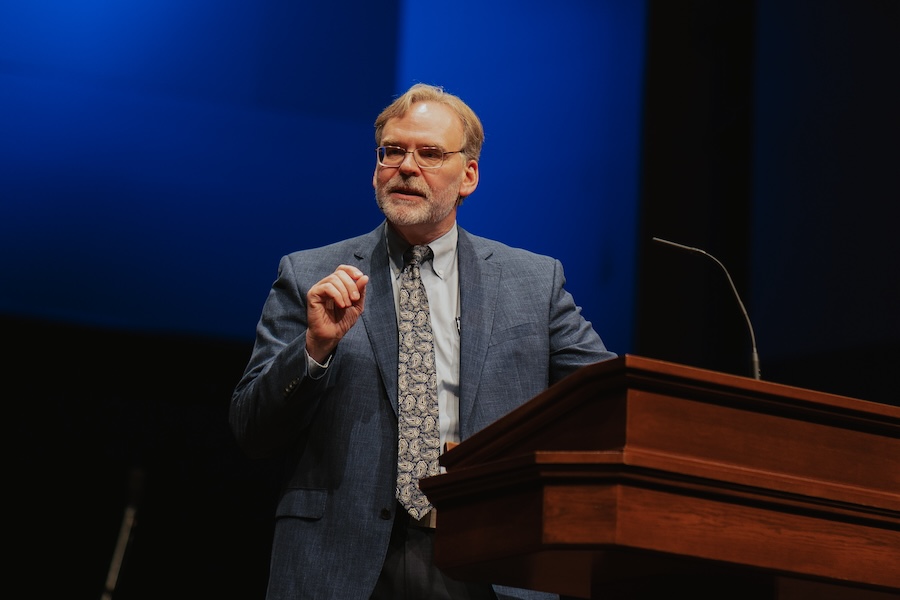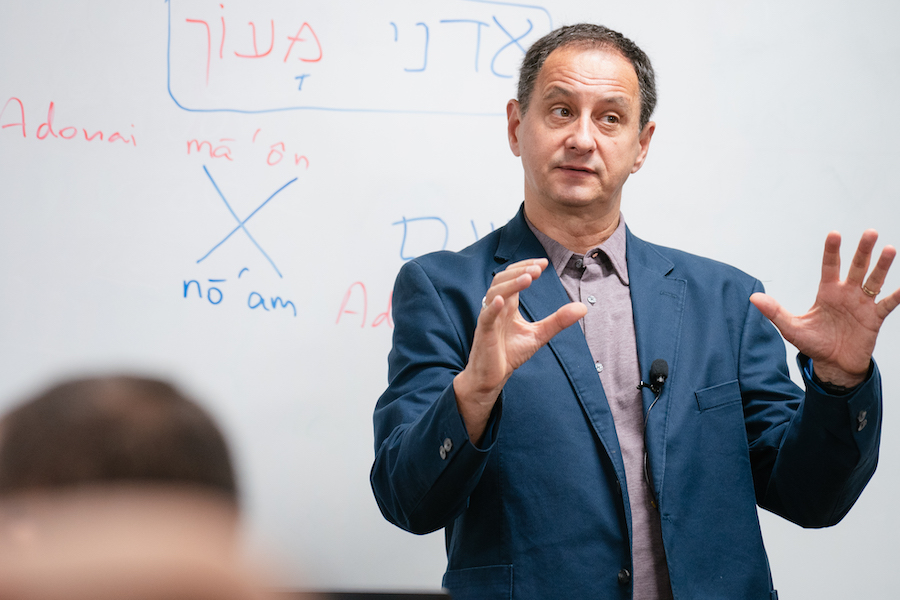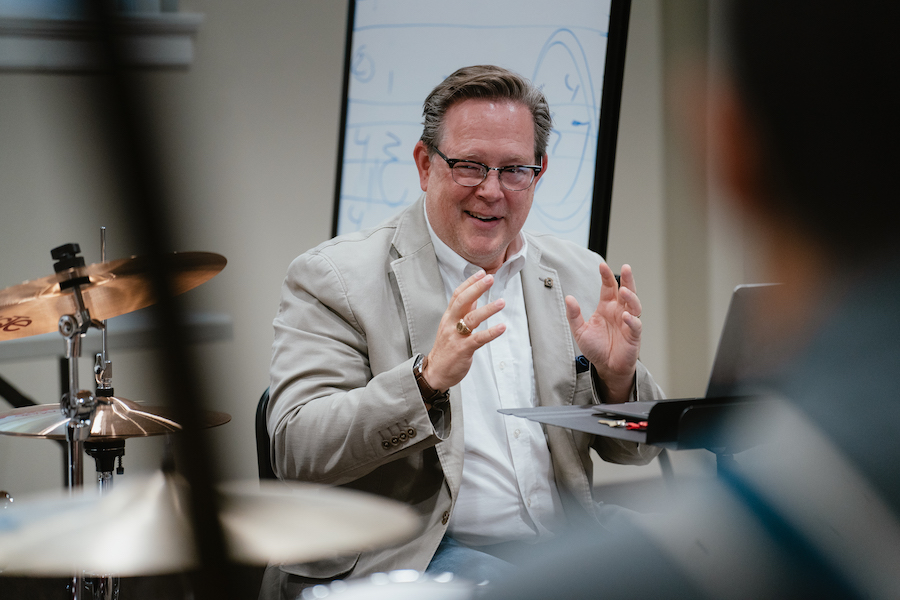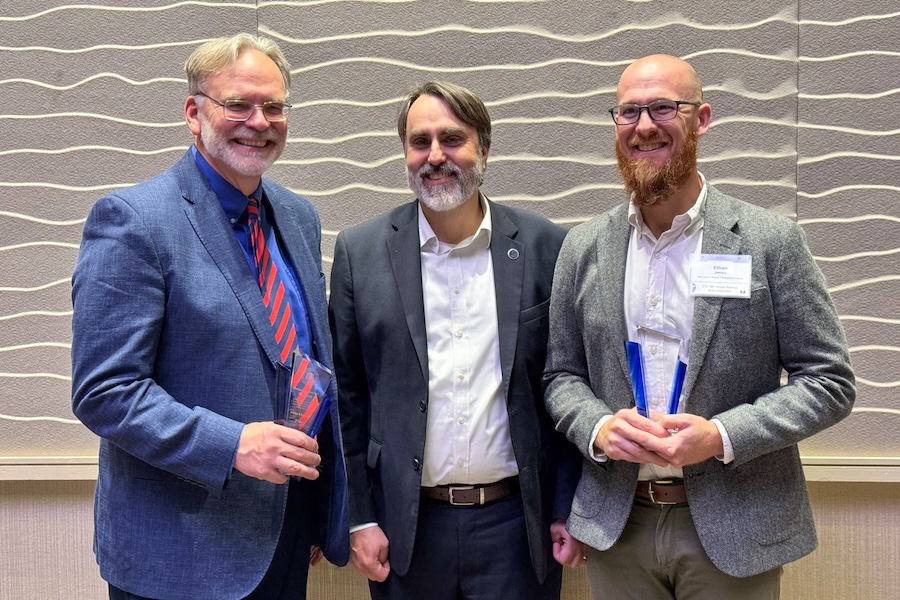Crider uses innovative pedagogy to teach students the ‘magic’ of writing
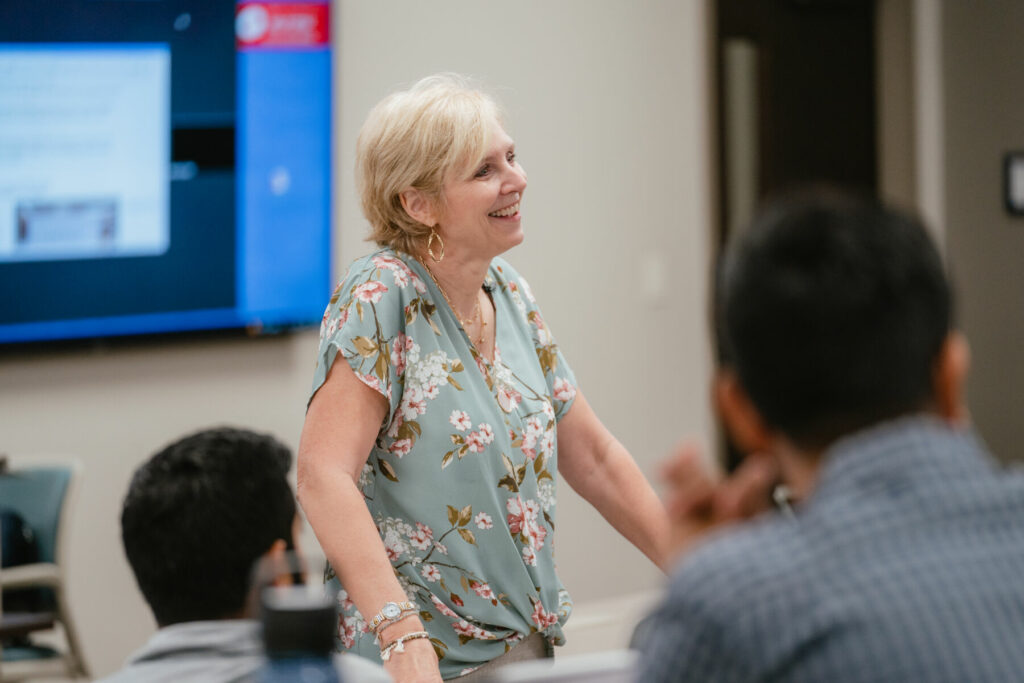
Rylee Riggins, who is “not a morning person at all,” said she woke up “excited” every morning in the spring for her 8:30 a.m. writing class with Amy Crider during the second semester of her freshman year at Texas Baptist College.
A Lantana, Texas, native who was the 2022 recipient of the TBC Scholarship Essay contest, Riggins said Crider, associate professor of foundations of education, “cultivates a classroom that wants to be there.”
“She was super passionate about English and it made me really passionate about English because writing is so much fun to me,” Riggins added. “So watching her have that passion made me want to even be an English teacher because of how she taught and the impact she had on a lot of the student’s lives.”
Crider’s passion for writing stems from her own life and love of writing, but also from her desire to use writing to engage the heart for Christ’s purposes.
Crider said she has taught wherever her husband, Joe, dean of Southwestern’s School of Church Music and Worship, has taught. However, it was not until she was teaching writing courses at the Southern Baptist Theological Seminary in Louisville, Kentucky, that she asked herself, “Can we teach writing Christianly?”
“Is there a way that we as Christians can write differently?” Crider wondered. “Can we teach writing differently? Is there something uniquely different about what can happen in our classrooms as writers because God is the Word?”
Crider considered, “Obviously the written word is tremendously important to Him so that should make a huge impact on us.” She explained the realization made her “tweak” things in her class as she approached the topic of writing. At the encouragement of her husband, Crider began to pursue a Doctor of Education at Southern Seminary to “ask that question there,” she recalled.
Crider, who earned her EdD from Southern Seminary and will graduate in December with a Doctor of Philosophy in educational leadership from the Kentucky-based seminary, finds interest in the field of innovative pedagogy, or the practice of creative instruction, and its effects on learning.
It is the innovation she uses in teaching writing Christianly that leaves an impact on her students. Riggins said Crider gives her students “an invitation to a better way of learning because you’re not just writing someone else’s thoughts.” Crider helps her students “create” and “formulate” their own thoughts, which Riggins believes is “very important in the world that we live in.”
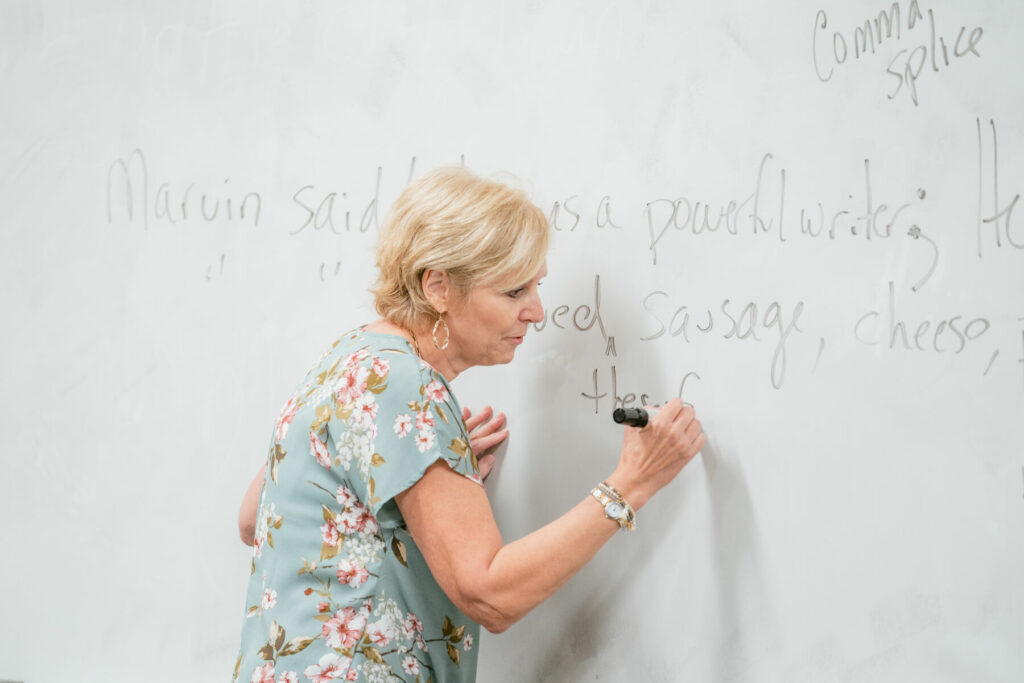
Amy Crider, associate professor of foundations of education at Southwestern Baptist Theological Seminary, seeks to teach her students how to formulate and create their own thoughts through a variety of innovative teaching methods.
In the classroom, Riggins caught what Crider said she tried to impart to her students.
Recognizing freshman English is a required course that is usually a student’s “least” favorite, Crider said she has “such a heart for that class.” She explained that while she has taught numerous freshman English composition classes, “If a student can come in and say, ‘Oh, yuck,’ on day one, and go out being inspired to be a writer for the Kingdom, and having this love of the people in their class that they got to work with and write with and hear their writing” while recognizing that they can “be part of this long historic stream through church history,” it is a win.
Crider uses innovative pedagogy in the classroom as she encourages her students in writing by writing in their own hand the works of classic authors – literally. Previously, Crider has given her students an extra-credit assignment of “really well-written paragraphs” from Scripture or by notable writers, including Christian writers such as Augustine, C.S. Lewis or J.R.R. Tolkien, or well-known novelists such as E.B. White, the author of Charlotte’s Web. The students then copy the paragraph into notebooks three times during the week and submit their notebooks at the end of the semester.
The exercise allows the students to put “their hands in the glove of a Christian, or even just a great writer, and tracing their words with them to get the syntax and the music and starting to see the magic of writing,” Crider explained.
She added that “we’re so screen driven that sometimes we miss the sentence level magic of writing.”
This past spring in her second semester freshman English class, Crider had the students choose a selection of writing – a favorite author or passage, hymn, or portions of a movie script – and the students shared their choices with their classmates in the course’s online shared document. Crider then led her students in analyzing the selections to “figure out what makes that writing sing.” Crider sought to help her students answer the question, “Why is your heart attracted to that writing?” because “what we really want to do as Christian writers is engage people’s heads, but we also want to engage their hearts. And I think one of the ways we can engage people’s hearts is through their writing style.”
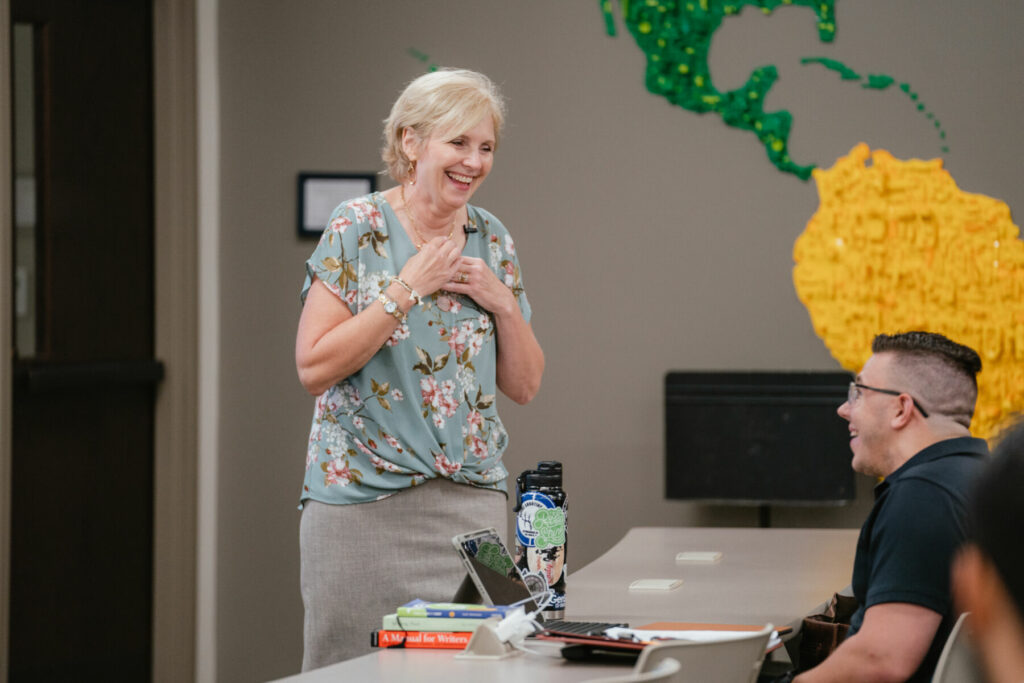
Crider invests in her students inside and outside of the classroom, including studying with her students as “she was so interested in what we were doing that she was doing it with us,” said Rylee Riggins, a sophomore at Texas Baptist College.
Crider, who also teaches writing at the doctoral level and serves as the director of the Center for Writing and Rhetoric, said she tries to teach students to write “logically,” “coherently,” “concisely,” and “precisely,” but also in a way that helps them “figure out how we can make our writing engaging and compelling.”
Crider does not just teach her students to write in the classroom, but writes alongside them as she engages in writing the same papers she assigns her students. However, Riggins explained, Crider would also use the “big conference table” in the conference room in Price Hall outside of class hours to study with the students.
“She would just get all these books, and we would all study together,” Riggins recalled. “We all sat together and did homework together and she would just do it with us.” Riggins added that it “wasn’t just her teaching,” but it was the care Crider showed for her students as “she was so interested in what we were doing that she was doing it with us.”
The help Crider provides extends to those beyond her classroom.
Sandra Tilley returned to finish her undergraduate degree in biblical studies at TBC in the fall of 2021 following the death of her husband. She was 76 years old at the time and was tasked with writing a paper for her creative writing course. Though not in Crider’s class, the professor offered to help Tilley with her paper.
Tilley had a lifelong career in modeling. She explained she had just purchased the late Italian designer Giovanni Versace’s biography. When Crider asked her what she was interested in, Tilley replied, “Modeling.” At Crider’s encouragement, Tilley wrote her paper comparing modeling in the 1960s to modeling today.
Tilley said she was “concerned” because of the topic, but remembered that Crider assured her, “It is okay. This is what you are interested in now. You will get there.”
Every subsequent writing assignment Tilley has been given Crider has helped her though she has never been enrolled in Crider’s courses. However, Tilley said Crider has taught her as she provides an explanation about why to write a certain way. Tilley said Crider has been a constant “encouragement” as she has worked through her assignments.
“I have never had her as a professor, but she is my favorite professor,” Tilley said.
Crider is thankful for the opportunity to invest in the students at Southwestern and TBC because “the students are such a joy.”
“I’m just really grateful to be here with this group of people,” Crider concluded.
